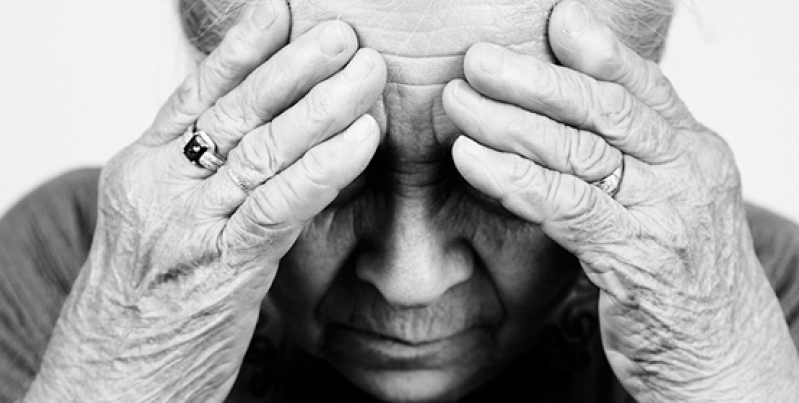
In a U.S. study that followed older women for nearly 20 years, those who complained of memory lapses were more likely than others to later be diagnosed with mild thinking problems or dementia.
The subjective sense that one has more memory lapses than peers could be an early sign of a long term process leading to dementia, researchers say.
"We do not know why some older adults develop concerns about their memory even though they are not showing memory problems on tests of thinking skills," said Allison R. Kaup of the San Francisco VA Medical Center and the University of California San Francisco. "One possibility is that an individual may be noticing changes in their memory that are so subtle that clinical tests do not detect it."
The study began with 1,107 dementia-free women age 65. Over 18 years, they periodically answered the question, "do you feel you have more problems with memory than most?" At the start, 89 women, or less than 10 percent of the group, answered "yes."
"It remains unclear whether there are particular kinds of memory concerns that might be most telling to estimate whether or not an individual may experience future cognitive decline," Kaup told Reuters Health by email. "This basic question likely did not capture all the complexity that may be important to understanding an older individual's concerns about their thinking skills."
After 18 years, the women were tested for thinking ability and memory impairment. Those who had answered "yes" initially were 70 percent more likely than the others to be diagnosed with memory or thinking impairment.
About half of those with initial memory complaints were diagnosed with mild cognitive impairment or dementia, compared to 38 percent of those with no complaints.
At 10 and four years before the study ended, memory complaints were even stronger predictors of an eventual diagnosis, according to the results in Neurology.
"Other studies suggest that evidence of recent change (rather than remote change) in memory, worse memory relative to age-matched peers, and concern about memory changes may be more likely to predict decline than other concerns such as momentary lapses in attention or difficulty retrieving names, which may be more likely to reflect normal aging," said Rebecca E. Amariglio of the Center for Alzheimer Research and Treatment at Brigham and Women's Hospital in Boston.
Studies including men and women have found similar results, said Kaup.
The new study covered a long time frame, but only a small group of women had memory complaints, said Dr. Frank Jessen of the University Hospital of Cologne in Germany, who also was not part of the study.
"Whether or not women should be afraid that they could develop dementia based on memory complaints is difficult to say from this paper," as not all women with the complaints did end up with a diagnosis, and not all of the diagnoses were of dementia, Jessen told Reuters Health.
Mild cognitive impairment involves thinking changes that are noticeable to the individual, but do not interfere with daily life.
"Most people who have subjective memory decline will not get dementia," Jessen said.
Subjective memory problems may stimulate people to live a healthier lifestyle, which can help preserve brain function, he said.
"There are a number of health and lifestyle factors that help promote cognitive health in aging, things like staying physically active, maintaining cardiovascular health, getting good sleep, and having a socially active and mentally-stimulating lifestyle," said Dr. Kristine Yaffe, also of the San Francisco VA Medical Center and the University of California, San Francisco, senior author of the new study.
If friends or family notice a change in your memory, you should consult a doctor, Jessen said.
SOURCE: http://bit.ly/NwhhyY Neurology, online October 28, 2015.
(This version of the story has been corrected to remove claim in paragraph 10 that Allison Kaup was not involved with the new research.)






